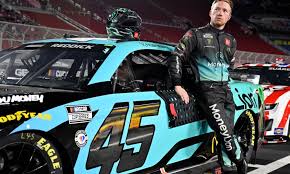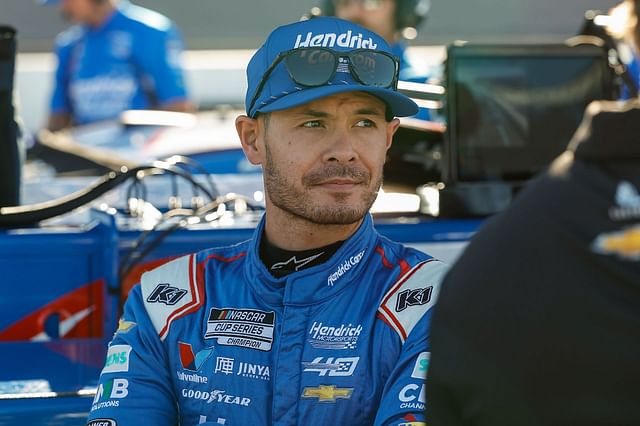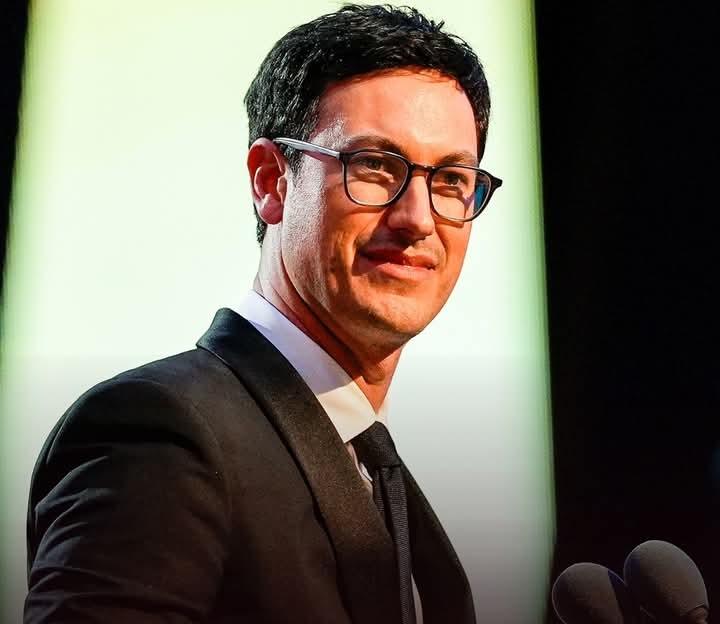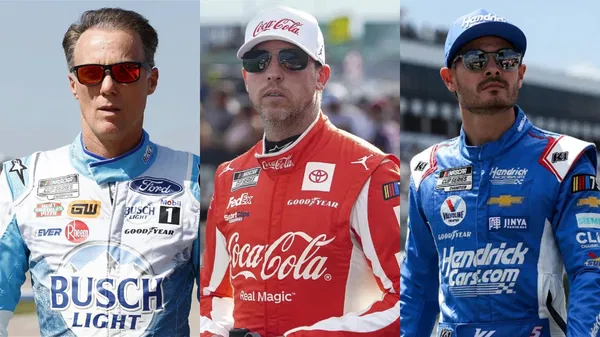Tyler Reddick’s victory in the Southern 500, a race that secured the regular-season championship by a single point over rival Kyle Larson, was eclipsed by an unexpected controversy after the race ended. The absence of a NASCAR executive to present the championship trophy has ignited a wave of tension within 23XI Racing, co-owned by basketball legend Michael Jordan and NASCAR driver Denny Hamlin. Hamlin, frustrated by this, did not mince words, as quoted by Associated Press.
“Certainly, pretty disappointed to not see anyone from NASCAR present Tyler his trophy,” Hamlin said. This snub comes against a backdrop of escalating tension between NASCAR and racing teams over the franchise system extension. The underlying grievance is rooted in ongoing negotiations about the charter system, which guarantees race entries and a share of TV and purse revenue for 36 charters in the top-level Cup Series. Teams are pushing for a larger revenue share and permanent charters, while NASCAR has proposed anti-disparagement clauses and the potential repossession of charters to accommodate future manufacturers.
Curtis Polk, co-owner of 23XI Racing, has been vocal in resisting these proposals, once donning a sign that read: “Please don’t ask me about my Charter. I don’t want to disparage NASCAR and lose it.” The absence of a NASCAR executive at Reddick’s trophy ceremony seems to symbolize deeper issues between the organization and the teams. The tension is not merely about trophy presentations but centers on fundamental disagreements over the sport’s future direction and governance. “Right now, NASCAR owns this and teams own that, and we compete for the same sponsors,” Hamlin explained, alluding to the fragmented landscape that sees teams and NASCAR vying for the same financial resources.
“They do not want you speaking negatively. That’s a new add to the charter agreement,” he continued. “One side will have to wake up and be reasonable. That’s all.” “I think for a very, very long time, NASCAR has said this is our family business and if you don’t like it, you don’t have to participate,” he said. “I think the world has changed since that mentality was established a long, long time ago by Bill France Sr. and while I certainly respect everything they have built, and that they have done a good job, at a certain point, you have to update your thinking or else you will hold the sport back.” This simmering discontent has tangible effects, with teams withholding image rights for a Netflix series amid negotiations, disrupting crossover and promotional opportunities.
“In my opinion, until we do that, we are just going to continue spinning our tires.” It’s this perceived lack of acknowledgment of the teams’ contributions that particularly galls Hamlin and his peers. “I think it’s more just a frustration of a lack of acknowledgement that the teams have built this sport. (Rick) Hendrick and (Joe) Gibbs putting superstars on the race track – that is what has built the sport,” he pointed out.
The discontent is further fueled by the belief that the sport’s growth is being hindered by outdated paradigms. “Fans do not come to see cars going around in circles. If they would, then we would sell-out ARCA races, but they don’t. They come to sellout on Sunday to watch Chase Elliott and Kyle Larson and Kyle Busch.” The uncertainty looms as teams and NASCAR navigate these turbulent waters, particularly with charters set to expire post-December. Without a resolution, legal and operational challenges could ensue by 2025.
“There’s probably a handful of teams that are just happy to take any deal that they can get, and there’s others with some business sense that says this is unreasonable.” He ended: “All we do is compete against each other instead of locking arms and growing the sport together.
“In my opinion, until we do that, we will continue to go in circles.” It is this lack of recognition of the team’s contributions that particularly irritates Hamlin and his teammates. of recognition that the teams have built the sport.
“(Rick) Hendrick and (Joe) Gibbs put superstars on the race track — that’s what built the sport,” he stressed. The dissatisfaction is also fueled by the belief that the growth of the sport is hindered by outdated paradigms. “The fans don’t come to see the cars go around in circles. If they did, ARCA would have sold races, but they didn’t.” They came to a sellout crowd on Sunday to see Chase Elliott, Kyle Larson and Kyle Busch.
Uncertainty looms as teams and NASCAR navigate these murky waters, especially with cards expiring after December. Without a solution, legal and operational challenges could arise as early as 2025. “There are probably a handful of teams that are happy to take any deal they can get, and there are others who say that’s not the case reason.
He concluded: “All we do is compete with each other instead of standing together and growing the sport together.
Trophy Drama: Reddick Snubbed by NASCAR EXECS?? Another Tension Sparked at 23X1 Racing Tyler




